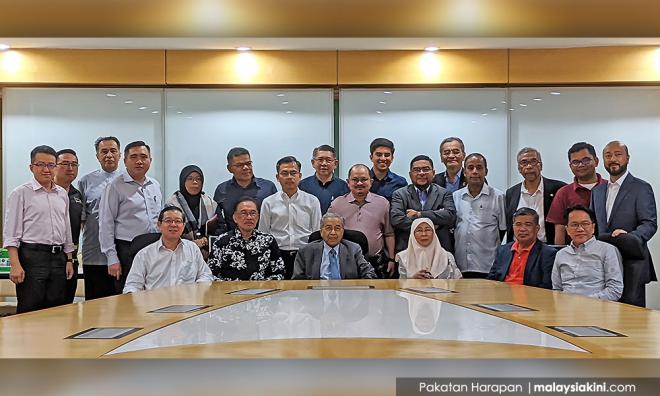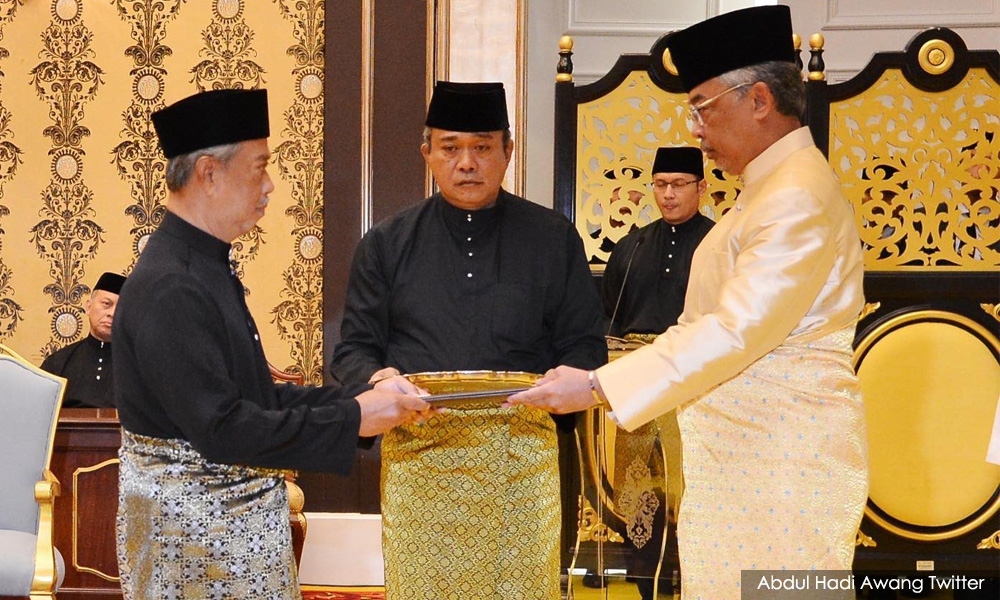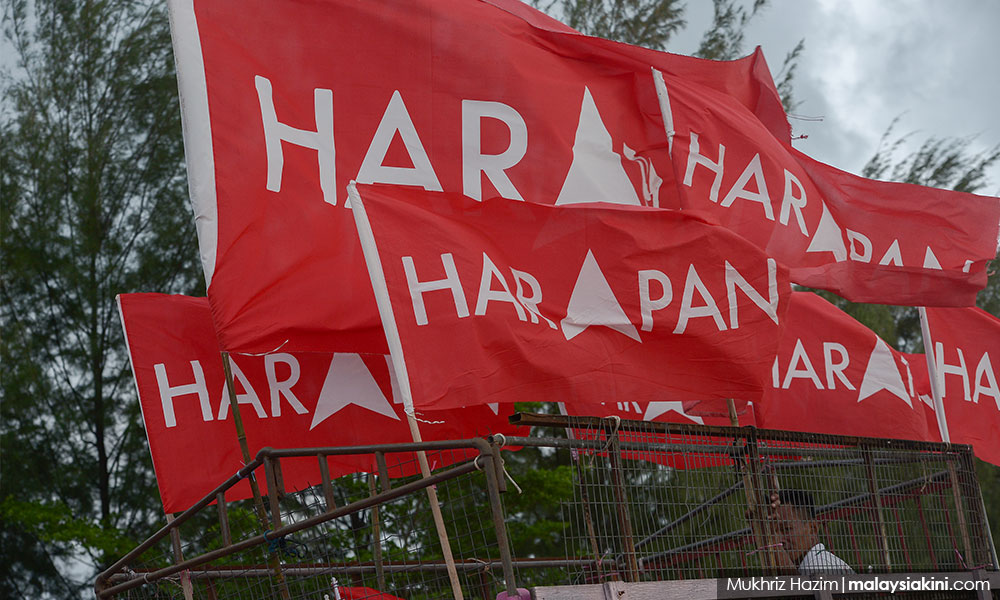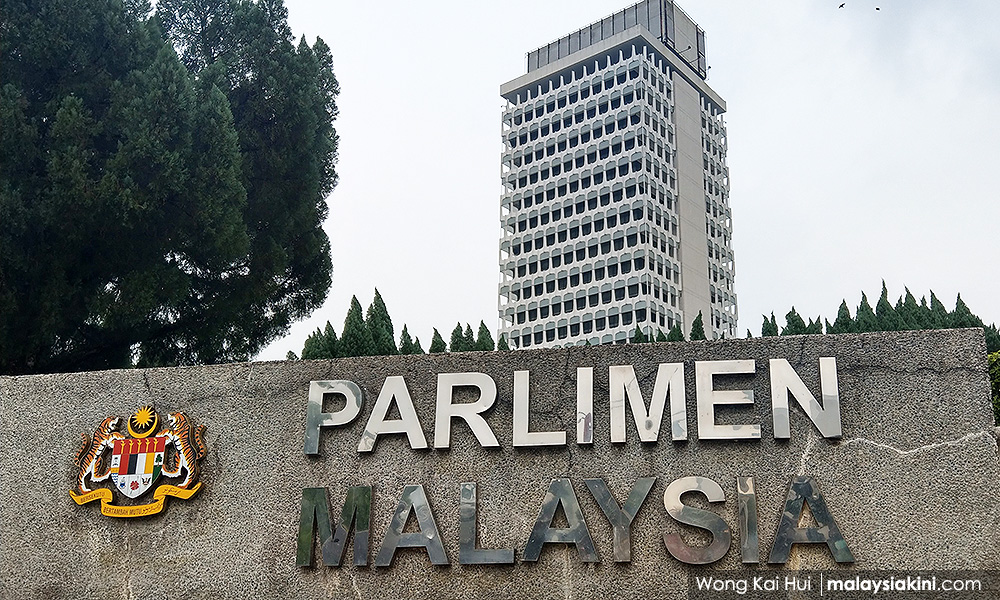
Today’s battle is lost.
Many fought hard, many fought valiantly. But even the valiant take a beating now and again.
Many of us who felt unprecedented highs with the results of GE14, are now feeling unprecedented lows.
It feels like our hearts were ripped right out of our chests, stolen away by thieves in the night.
Absolutely no one can be blamed for feeling that way. And we have every right to vent those frustrations in any non-violent way we want.
Soon after we are done venting though, we need to learn the right lessons from the past, and start looking to the future. As my sister likes to say: don’t get mad, get organised.
In the hours and days to come, there is sure to be a lot of finger-pointing and blame.
Understanding what went wrong is useful; making toxic accusations against one another is not.
My own personal view is that the true problems that led to today’s loss began way before GE14.
Any effective social or political movement must be founded on and grounded in solid values, ideas, and principles.
A coalition that unites for no reason beyond fighting a common enemy cannot last long.
We have learned this lesson with almost every attempt at an opposition coalition in Malaysia’s history - from Angkatan Perpaduan Ummah and Gagasan Rakyat in 1990, through Barisan Alternatif in 1999, Pakatan Rakyat after 2008, and Pakatan Harapan in 2018.
Harapan decided in 2018 that it was easier to dodge the painstaking process of really identifying key common values and principles in which a coalition should be anchored.
In some analyses, sidestepping this process was the right choice, as it led to an electoral victory for Harapan - aided of course by PAS’ decision to instigate three-cornered fights.

As Muhyiddin Yassin (photo) is sworn in as the prime minister of the new Perikatan Nasional (PN) coalition, however, it appears that the bill has come due.
In its 20 or so months in power, the lack of common values to keep Harapan glued together has plagued the Harapan administration, and made it extremely vulnerable.
Harapan was paralysed and constantly falling between two chairs, as they were never fully bold nor fully conservative - trying to please everyone, but pleasing no one in the end.
Without a shared compass, different people kept pulling in different directions, and ultimately, the ship meandered adrift - going nowhere fast.
Thus, Lesson Number 1: Movements that are not based on clearly identified common principles that are mutually agreed on, will fall apart sooner rather than later.
#StrongerTogether: Malaysia needs a new race narrative
Post-GE14, some looked at the numbers and were constantly crippled by the fear of not being able to win the Malay vote in the next general elections.
People were happy to use the term “New Malaysia”, but were eventually far too frightened to put anything actually new in it.
As the Harapan government hesitated and prevaricated, unable to define this new Malaysia because they had not built a solid shared ideology of their own, some people eventually grew tired of waiting, and defined it for them.

The vacuum that Harapan created was filled with the most readily available ideology at hand - that of racial division. It was a narrative Malaysians knew all too well, and those with selfish interests were already the world’s leading experts on how to exploit it.
These same experts are now going to double down on their efforts, on the heels of this new government.
They will justify their machinations in racial terms, and seek to consolidate their power moving forward using racial terms.
Non-Malays very often have a tendency to respond to this by falling into the trap of trying to fight fire with fire - a strategy that will leave us with nothing but scorched earth where our nation once stood.
In preparation for Malaysia’s next redefinition, we need to think carefully about articulating the unity narrative that we want to put forward as an alternative to this narrative of division.
We will not achieve that narrative by "countering" the racism of this new government on their terms and on their turf; we will achieve it by carefully crafting a narrative that is inclusive and mindful of the aspirations of people who do not look or think like us.
It is difficult, but all the time I have spent working on this issue convinces me that it is possible. It is possible to heal the division, to bridge the gap, and to convince Malaysians that ultimately, we are stronger together.
Lesson Number 2: Invest in building an articulating a clear, cogent, and coherent unity narrative; then stick to it.
Innovating democracy
Perhaps the most obvious observation from this last week is that our system of "democracy" is shot to hell.
Not only does it make it perfectly legal and constitutional for members of parliament (MPs) to change their political allegiances (and thus effect a change of government) literally as many times a day as they like; it also has close to zero reliable guidelines on how to manage the confusion and find clear, decisive answers on how to determine something so fundamental as deciding who our PM should be.
This is one aspect of our Westminster democracy that can and should be fixed independently. There should be crystal clear procedural guidelines that leave absolutely no ambiguity about how these crises should be handled in a way that will not bring the nation to a grinding halt, and keep lawyers busy for months.
In the grander scheme of things however, there are much deeper problems with the manner in which we practice ‘democracy’. Briefly:

Firstly: Our right to self-determination and ability to influence the decision-making process has been stripped away and reduced to nothing beyond choosing between a few boxes on a ballot once every five years. Notably, we, the rakyat, had absolutely zero ways to meaningfully influence anything that happened in this last week of political crises.
Secondly: Do political parties truly add any value? Do they encapsulate our values or aspirations accurately? If not, are they truly necessary to genuine democracy today? Internal party politics sparked off this entire week of crisis; and the party system plus the fact that only 222 MPs represent 32 million Malaysians are cornerstones of Malaysia’s worst political problem: money politics.
Thirdly: Our electoral system, like many others, completely incentivises oppositional politics - mudslinging, fearmongering, instigating hate and so on. It does not in any way incentivise or reward cooperation, consensus building, and working together for the common good.
A smartphone from as little as eight or ten years ago would be completely unable to handle the mobile apps of today; and yet, the form of our ‘democracy’ has barely changed in almost centuries. Surely it is ripe for disruption and innovation?
I have expanded on and described these ideas in slightly more detail here.
Lesson Number 3: Our democratic system and incentive structures fully determine the behaviour of our politicians. They will never change, until we change the system.
Fighting smarter to save Malaysia
As down as I’m sure many are feeling, ultimately, I don’t doubt the commitment of my fellow Malaysians to survive this setback, and to come out swinging even harder for a better Malaysia.
We cannot however just keep fighting harder - we also need to fight smarter.
We tried just putting a new king on the throne, and we’ve seen that it isn’t enough. A bad system corrupts and constrains even the best, and bends them to their will - much like Tolkein’s One Ring.
Likewise, the only way to truly break free, heal, and grow, is to throw that ring into the fire.
This is a battle that we cannot fight based on how loud we shout or how strongly we bang the table; if we really want a different result than what we’ve seen today, we will need to be sharper in our strategy, bolder in our willingness to innovate, and braver in our resolve to go beyond our comfort zone.
It’s going to be challenging every step of the way. But we’ve fought and won this battle before, and by God, we can fight and win it again.
NATHANIEL TAN can be reached at nat@engage.my. - Mkini


No comments:
Post a Comment
Note: Only a member of this blog may post a comment.